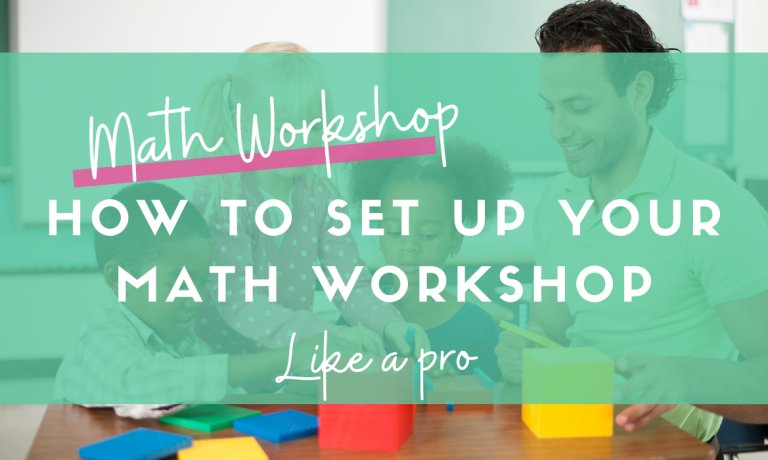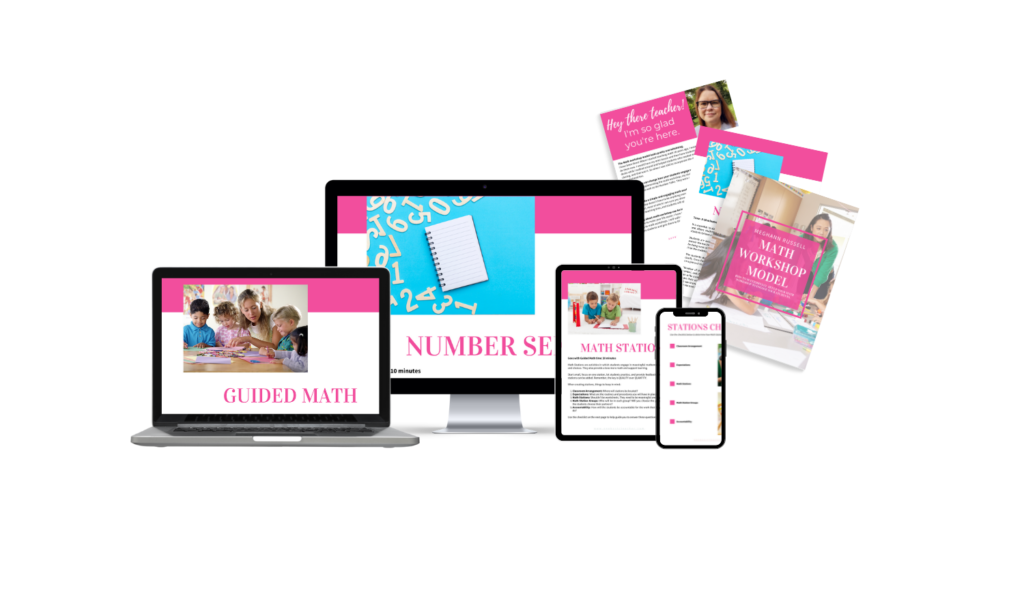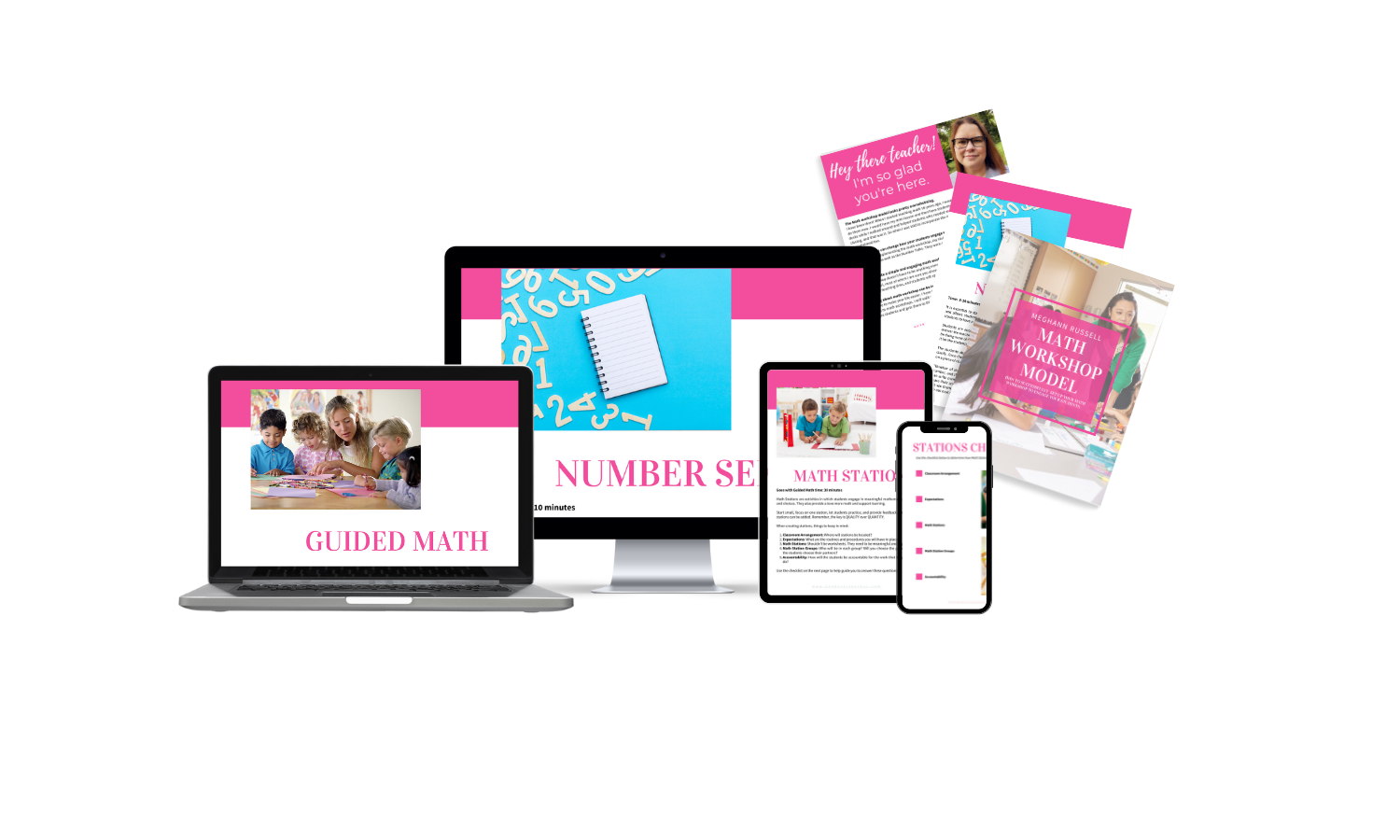I will be the first to admit I didn’t always do math workshop. I used to have the traditional math block where I taught the students how to solve a problem; then, I would have the students try a sample problem with me and slowly and gradually release the responsibility.
When I moved schools, the principal wanted the math workshop model to take place during our math block time. I wasn’t sold on it. If the old way worked, and math stations? That was way more work, and I was already working longer hours than my contract, and now my principal wanted to add more?
Then I took a step back and thought about my math block. I thought about my students and thought about how I was reaching them. Was I getting all of my students? Or was I just teaching to the middle? I started looking into Math Workshop, and the more I wanted to try it, even in a basic form, I have to say I loved it.
So in this post, I will be sharing with you how to set up your math workshop like a pro that will be quick and easy.
Now, before I get into the nitty-gritty of Math Workshop, if you are looking for a guide to set up your own Math Workshop, I have a guide for you sent directly to your inbox! Just a teacher helping out another teacher! Click here to get started and make your math workshop more engaging and fun!
What is Math Workshop?
Math Workshop is a model where students are engaged in math. This can include open-ended problem solving, small group instruction, student choice, and time to practice concepts and skills taught throughout the year. It involves five different components to your math block:
- Number Sense routine
- Whole Group lesson
- Small group instruction (or guided math)
- Math stations
- Closing or a debrief
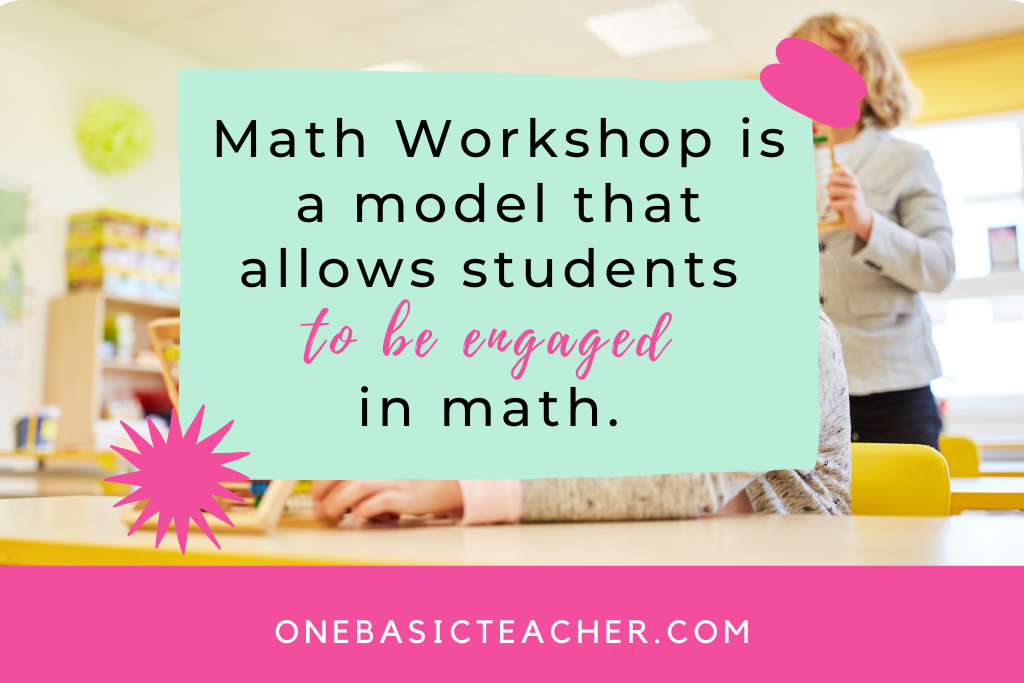
As the teacher, you are not always talking or lecturing. The students need time to explore math concepts and figure out a way to solve a problem independently. This is truly the most challenging part of the Math Workshop.
As teachers, we want to show our students the easiest way to solve a problem or the way “that works.” however, that doesn’t help the student become a better mathematician. They need to understand numbers and see math in their environment. Students make connections and determine problems that need to be solved and how to solve them. As a teacher, we must guide and facilitate that learning.
What Can Math Workshop Look Like?
Your math block can look however you want; however, there are a few basic structures that I found worked best for me.
I usually follow this structure most days:
- Number sense routine – this is an integral part of your math block that should take 5-10 minutes. It not only provides students with a sense of community, but it also engages your students to think flexibly. Students who practice these number sense routines have a more positive reaction towards math and a willingness to take risks.
- Whole group lesson – should take no longer than 15 minutes. Whole group instruction should be used to introduce a new concept in math or a new learning station. It is essential to focus on grade-level standards. It is important to note that this is exploring time, not “tell” time. This means students should be exploring ways to solve problems their way versus telling you how to solve them. The students should also be doing most of the talking during this time.
- Guided Math groups – each station should be no longer than 15 minutes. Groups are meant to give teachers the class time to work with small groups or individual students. Lessons should be purposeful and differentiated. Take notes and ask questions while allowing students to explore math concepts.
- Stations – These are done alongside Guided Math groups. Math games promote the love of math and support student learning. The games should be fun to engage students who are anxious about math.
- Closing is essential and usually the most forgotten of the five steps. You can do so much during these last 5 minutes. This is when you reflect on strategies that students used during a lesson, station; you name it. During this time, students make mathematical connections and share strategies that they used.
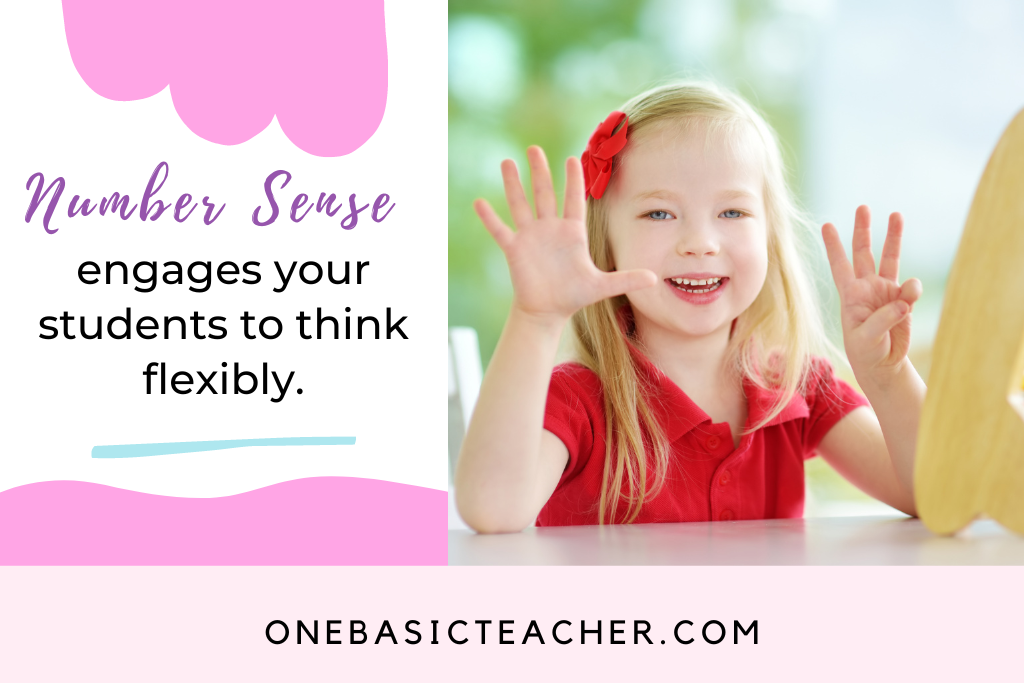
I go into this further in my Guided Math Workshop Model Workbook here if you’d like to check it out for free!
Another model I follow is the whole group but still engaging for the students.
- Number sense routine – The same way as stated above
- The whole group – You can teach a new learning station with your students and do a 3-act-task or an estimation task with your class.
- Reflection – This is where students share what strategies they used in the lesson and make connections with each other.
How I Set Up My Weekly Math Workshop
I usually follow the model below:
Monday: I do the whole group lesson. Here, I usually teach a new concept or a learning station that they will be focusing on that week. Then, I also do a 3-act-task or an estimation task with my class. This is a fun way to start the week, and it gets my students thinking about the week ahead and what we will be learning about.
Tuesday- Friday: This is where I get into the math workshop model.
Guided Math Workshop
The Math Workshop model allows students to be engaged in math. This can include open-ended problem solving, small group instruction, student choice, and time to practice concepts and skills taught throughout the year. This can be done in five easy parts including a number sense routine, a whole group lesson, guided math, stations, and closing time.
It is important to remember that you are not always talking or lecturing. The students are talking and they need time to explore math concepts and figure out a way to solve a problem independently. This allows students to grow mathematically and learn to solve problems that they encounter.
Leave in the comments below any questions you have or share your favorite math activity that you use during math workshop!

